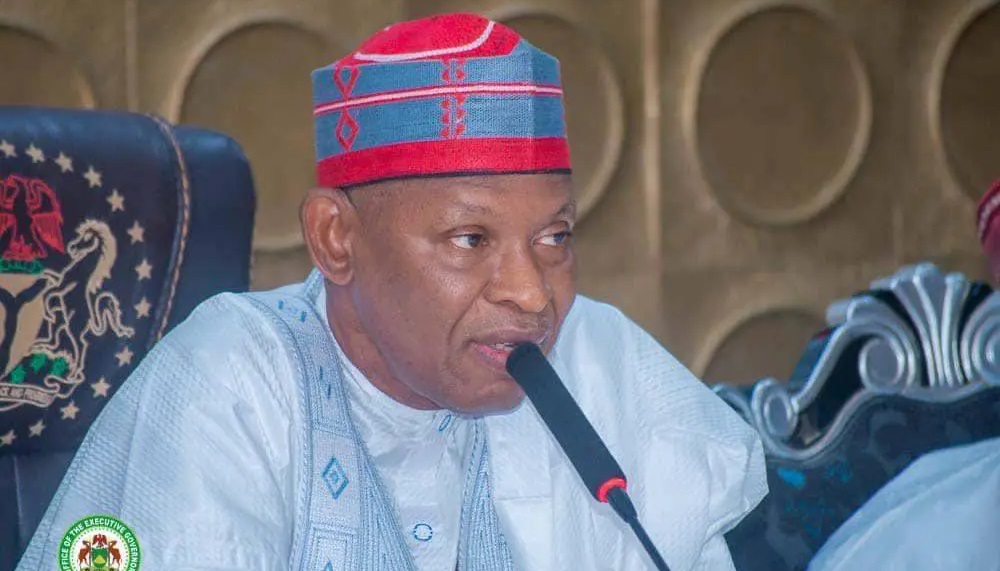News
Kwankwaso Sues Kano Governor Over Land Dispute

A land dispute in Kano State has taken a dramatic turn as Garba Kwankwaso, younger brother of former Governor Rabiu Kwankwaso, has dragged incumbent Governor Abba Yusuf to court.
According to court documents, other respondents include the state commissioner for Land and Physical Planning as 2nd defendant; Kano State Urban Planning and Development Authority, KNUPDA as 3rd defendant; the Attorney General of Kano State as 4th defendants and Unknown Persons as 5th defendants.
The lawsuit seeks an interlocutory injunction to prevent the governor and other defendants from taking any action that could harm their interests in the disputed land.
The land in question, located in Kwankwasiyya City, was initially allocated to WAECO Nigeria Limited during Rabiu Kwankwaso’s administration.
However, his successor, Abdullahi Ganduje, revoked the allocation after a 2017 investigation by the Kano State Public Complaint and Anti-Corruption Commission revealed that WAECO was not a legal entity at the time of the allocation.
The Kano State Public Complaint and Anti-Corruption Commission had revealed that the actual company behind the “WAECO” acronym was “Water and Agricultural Engineering Company Limited”, in which the former governor and his brother were alleged to be directors.
After the revocation, Mr Ganduje relocated Mallam Kato Square to a portion of the land and returned the remaining hectares to the original owners, including the famous Dantata family.
According to sources, the incumbent governor of the state, Abba Yusuf, however resisted pressure to revoke the land, measuring over 100 hectares, and return it to WAECO NIGERIA LIMITED.
Following the governor’s alleged refusal, Garba Kwankwaso then filed an application at a Kano High Court, pursuant to Order 38 Rule 4,(1), Order 39 Rule 1 (2), Order 45 Rule 14 of The Kano State High Court Rules, 2014, praying for the Following orders:
“1. AN ORDER OF INTERLOCUTORY INJUNCTION restraining the defendants/respondents either by themselves, their agents, privies, servants, representatives and/or contractors or whosoever acting on their behalf or instructions from entering upon, demarcating, beaconing, partitioning, building, allocating any part or doing any act adverse to the interest of the Plaintiffs/Applicants on the plaintiffs/Applicants’ piece of land lying and situate along Western By-Pass at Kwankwasiyya 11, Kano, Kano State particularly described in Survey Plan No. TP/KNUPDA/333 delineated red and marked as WAECO NIGERIA LIMITED covered by Certificate of Occupancy No. LKN/COM/2013/84 (hereinafter called “The Subject (Property”) pending the determination of the Substantive suit filed by the Plaintiffs/Applicants.
“2. And such other order(s) as this Honourable Court may deem fit to make in the circumstances of this case.”
The application is supported by a nine-paragraph affidavit deposed to by one Faith Job, a litigation secretary in law firm of P.A. Attabor & Co., counsel to the Kwankwasos.
Granting the order on November 13, Justice Usman Na’abba adjourned the case till November 27 for hearing of the application of the interlocutory injunction.
News
A Chat with Janet Odio Okolo: A Mother’s Journey Raising a Child with Down Syndrome

News
Hon. Nnamchi Begins Street Lights Deployment In Isi Uzo(Photos)

Honourable Paul Sunday Nnamchi, representing Enugu East/Isi Uzo Federal Constituency in the 10th House of Representatives, has fulfilled his promise to illuminate communities in Isi Uzo Local Government Area.
The lawmaker has just begun the deployment of high-density solar-powered street lights in Ikem Nkwo, marking the beginning of a massive rollout of the street lamps across the communities in Isi Uzo.
This initiative, which started in Enugu East Local Government Area in 2024, aims to support the fight against insecurity in the state which according to him was to add to what Chief Security Officer of Enugu State Barrister Peter Mba had done to secure the state to attracts foreign investments.
The lawmaker expressed concern over banditry attacks, particularly by herdsmen, in some communities within Isi Uzo and Enugu East Local Government Areas in the recent pasts.
He believes that illuminating these areas with high-density street lights would help address the insecurity adding that he was prioritizing border and farming communities in Isi Uzo, where banditry has displaced residents and restricted farming activities.
Communities in Ikem, Eha-Amufu in Isi Uzo which borders Enugu and Benue State and Ugwogo-Nike in Enugu East have been vulnerable to these attacks due to their strategic locations.
News
May Day: Kalu Hails Workers, Applauds Their Role in Nation Building

By Gloria Ikibah
Deputy Speaker of the House of Representatives, Rep. Benjamin Kalu, has extended warm wishes to Nigerian workers as the country marks the 2025 edition of International Workers’ Day.
Kalu praised workers across various sectors for their commitment and resilience, describing them as the engine that keeps the nation moving. He acknowledged their sacrifices and unrelenting drive, especially during tough economic times.
In his message, he highlighted the efforts of the current administration under President Bola Tinubu to improve the welfare of public servants. He referenced the National Assembly’s prompt backing of the new minimum wage as a sign of the government’s seriousness about workers’ wellbeing.
The Deputy Speaker appealed for continued patience and understanding from Nigerians, noting that the ongoing economic reforms, while challenging, are designed to bring long-term relief and prosperity.
Kalu also called for unity, and said the country can only overcome its present difficulties if citizens and leaders work together in good faith.
He therefore urged workers to keep the faith and remain steadfast in their duties, assuring them that brighter days are on the horizon, and wished Nigerian workers a peaceful and fulfilling May Day celebration.
-

 Metro21 hours ago
Metro21 hours agoGunmen storm University of Benin teaching hospital, kill doctor
-

 Metro22 hours ago
Metro22 hours agoFCTA destroys 601 motorbikes over violations
-

 News13 hours ago
News13 hours agoAlleged money laundering: EFCC produces Aisha Achimugu in court
-

 News21 hours ago
News21 hours agoJust in: FG declares tomorrow public holiday
-

 News15 hours ago
News15 hours agoJUST IN: Major General Paul Ufuoma Omu Rtd, dies at 84
-

 News15 hours ago
News15 hours agoTinubu hails Dangote’s World Bank appointment
-

 News17 hours ago
News17 hours agoSAD! Professor’s son takes own life inside varsity staff quarters
-

 News21 hours ago
News21 hours agoFull list: FG approves N110bn to rehabilitate medical schools 18 institutions























